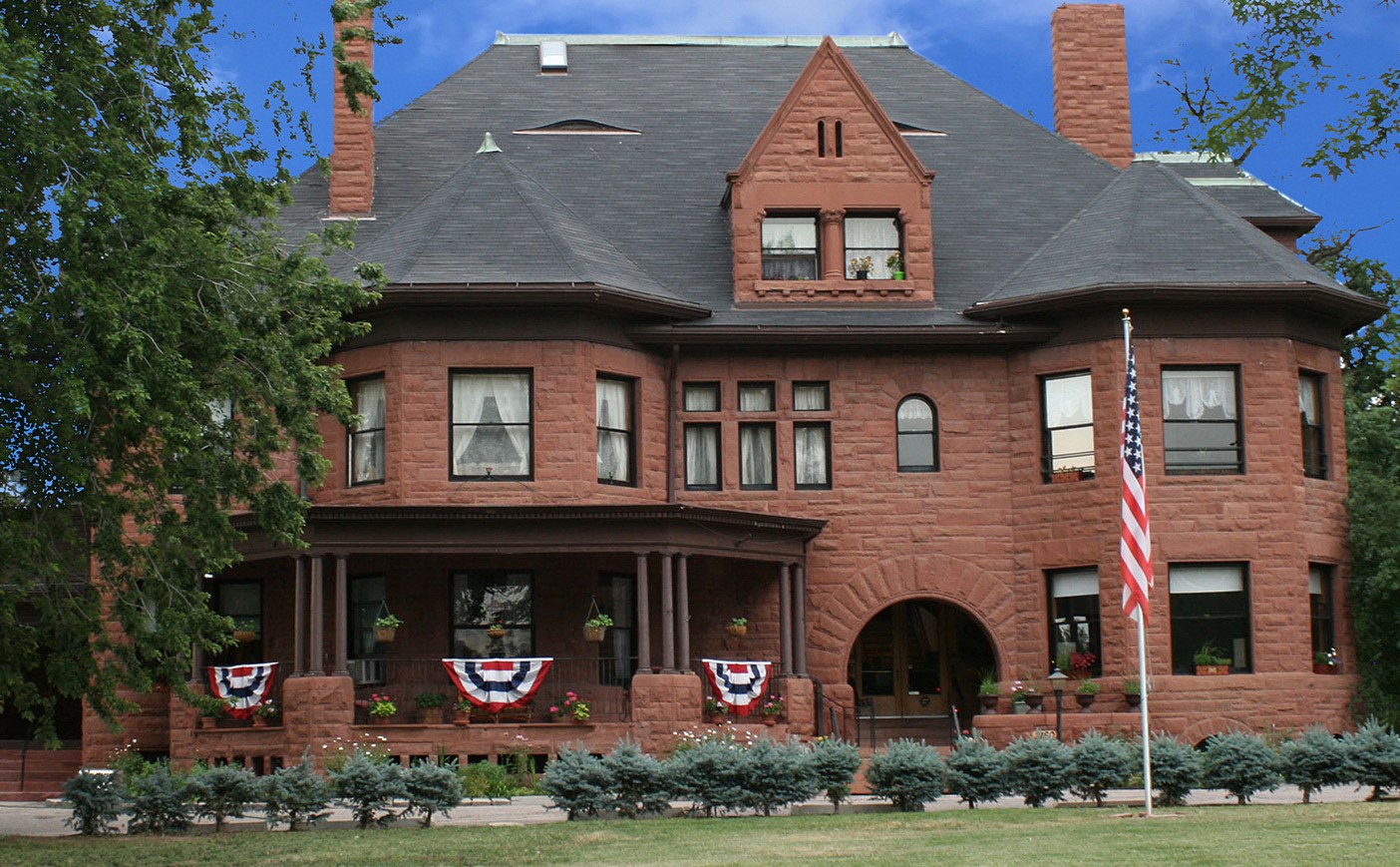
A Brief History of the Fitzroy Mansion
Celebrating 128 Years
1893-2021

The mansion was completed in 1893 and was designed by Fuller and Wheeler, architects from New York, in the Richardsonian Romanesque style that was popular on the east coast. The architects were noted for the numerous educational buildings they designed in the United States and overseas.
Constructed of red sandstone, the Mansion is large – three floors, a full basement, a carriage house with running water. It also had several unusual features for a home in those days – an elevator, a central vacuum system, an air cooling system for the first and second floors, and a refrigeration system in the basement for meat and other perishable items.
The Mansion was commissioned by Elizabeth Iliff Warren, widow of John Wesley Iliff, a successful cattle baron and Denver philanthropist. He died in 1878 of gall bladder obstruction., leaving Elizabeth Warren, at 34, with four children, cattle, and a land empire. Mrs. Warren assumed the family responsibilities and successfully ran her husband’s business as well as continued support for various charities.
Mrs. Warren used the family wealth to fulfill her deceased husband’s wishes – the endowment of two educational institutions – a vocational facility to provide education in the mechanical arts, and the other dedicated to educating men interested in training for the Methodist Ministry. The latter became the Iliff School of Theology, which still stands today.


Elizabeth with her daughters Louise and Edna
After Mrs. Elizabeth Iliff married Henry White Warren, Methodist Bishop, both continued to support education through the support of the University of Denver, the Iliff School of Theology, as well as other efforts.

Bishop Henry White Warren
While the Bishop and now Mrs. Elizabeth Iliff Warren relocated to other homes for vacations and other business, they returned to reside at the Mansion until their deaths.

Fitzroy Place circa 1900
In 1910, a fire, which started in the basement, caused considerable damage and took several years to restore the home. Shortly after they returned to the home, Bishop Warren became ill and passed away. Mrs. warren lived in the mansion until her death in 1920. Her daughter, Louise Iliff, lived in the Mansion until her death in 1966.
Building Facts
- Total square footage is 18,002 (19,000 including attic)
- 71 Doorways
- 99 Windows
- 10’ ceiling on all 3 levels – 8’ ceilings in the basement, and 16’ ceilings in the attic
- The basement has a walk-in ice room and 2 cold storage rooms. There are also ceiling-mounted radiators for a “convection” style cooling system.
- 13 fireplaces with 4 chimneys. 10 fireplaces are back-to-back
- Total of 25 rooms
- Central vacuum cleaning system
- The original deed showed the cost of construction to be $65,000.
- Elevator was installed originally, servicing the basement to the 3rd floor.
- Randell-Moore (now Accelerated Schools) purchased the entire block in 1967 for $68,500.00
- Named to the National Register of Historic Places in 1975
- Designated as a Denver Historic Landmark in 2008
Who We Are Now
The Mansion became the Randell-Moore School of Denver. In 1977, the founder of Accelerated Schools, Carl Peterson, was requested to combine his unique teaching system with the Randell_Moore School curriculum. The incorporation of this successful teaching method resulted in changing the name to Accelerated Schools in 1984 to more appropriately reflect its goals.

